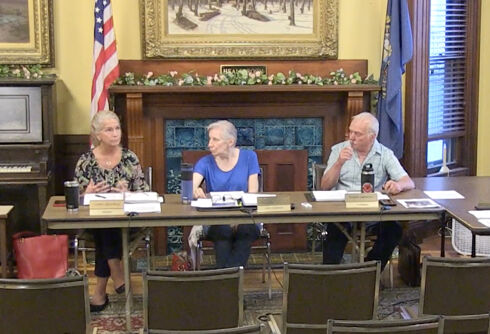ALBANY, N.Y. — The New York state Senate adjourned early Saturday morning without taking a vote on the Gender Expression Non-Discrimination Act (GENDA), a bill to prohibit discrimination on the basis of gender identity and expression in employment, housing, public accommodations and credit.
 The measure was first introduced in the New York state Assembly and Senate in 2003. The bill has passed six times in the Assembly since 2008 — most recently on April 30 with a nearly two-to-one bipartisan majority — but has never come to a vote on the floor of the State Senate.
The measure was first introduced in the New York state Assembly and Senate in 2003. The bill has passed six times in the Assembly since 2008 — most recently on April 30 with a nearly two-to-one bipartisan majority — but has never come to a vote on the floor of the State Senate.
Currently, New York state’s Human Rights Law prohibits discrimination on the basis of sexual orientation and has done so since 2003, but not gender identity.
Virtually every major New York newspaper, including The New York Times, has called for the Senate to pass the bill.
Never Miss a Beat
Subscribe to our newsletter to stay ahead of the latest LGBTQ+ political news and insights.
In addition, 78 percent of New Yorkers polled support ending discrimination against transgender people.
“We believe we had a bi-partisan majority of the Senate to pass the legislation and send it to the governor for his signature. We were defeated by the adamant refusal of the Senate leadership to bring the measure to the floor for an up-or-down vote,” said Nathan M. Schaefer, Executive Director of the Empire State Pride Agenda, in a statement on Saturday.
“What were they afraid of?” Schaefer asked.
Last month, Delaware become the 17th U.S. state, along with the District of Columbia, to include transgender people under its anti-discrimination laws.













